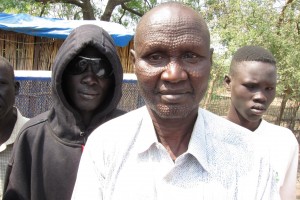 My four-day series on the coming breakup of Sudan in Slate magazine has received good notices from the likes of The Village Voice, The Browser, Bobby Ghosh of Time magazine, Microkhan, and the Wandering Savage.
My four-day series on the coming breakup of Sudan in Slate magazine has received good notices from the likes of The Village Voice, The Browser, Bobby Ghosh of Time magazine, Microkhan, and the Wandering Savage.
In case you missed the tasty 7,500-word opus, here’s a recap:
Part 1: Meet the Bernie Madoff of Sudan
Part 2: Fighting for Freedom in the New Sudan
Part 3: South Sudan: A Million Mutinies Now?
Part 4: South Sudan’s Oil Curse
Since the series began running, the insurgent militia leader Lt. General George Athor, who I quote in Part 3 of the series, has continued his private war in Jonglei state at the cost of some 300 lives. I’m posting, after the jump, notes from my January interview with Athor. I’ll reserve comment except to say the statements of this former golden boy of the Sudan People’s Liberation Army are extremely self-serving.
That’s all for now. I’m off to write a new chapter of The Black Nile to be included in the book’s upcoming Penguin paperback edition. So much has changed on the Nile this year, and so much of if for the better, that I felt the book needed an update.


 Sudan’s first multiparty elections in 24 years started yesterday in an atmosphere of anger, hope and confusion. The last election, in 1986, followed a people’s uprising that removed a military dictator. How times change. Today another military dictator – Field Marshal Omar Hassan al-Bashir, an
Sudan’s first multiparty elections in 24 years started yesterday in an atmosphere of anger, hope and confusion. The last election, in 1986, followed a people’s uprising that removed a military dictator. How times change. Today another military dictator – Field Marshal Omar Hassan al-Bashir, an